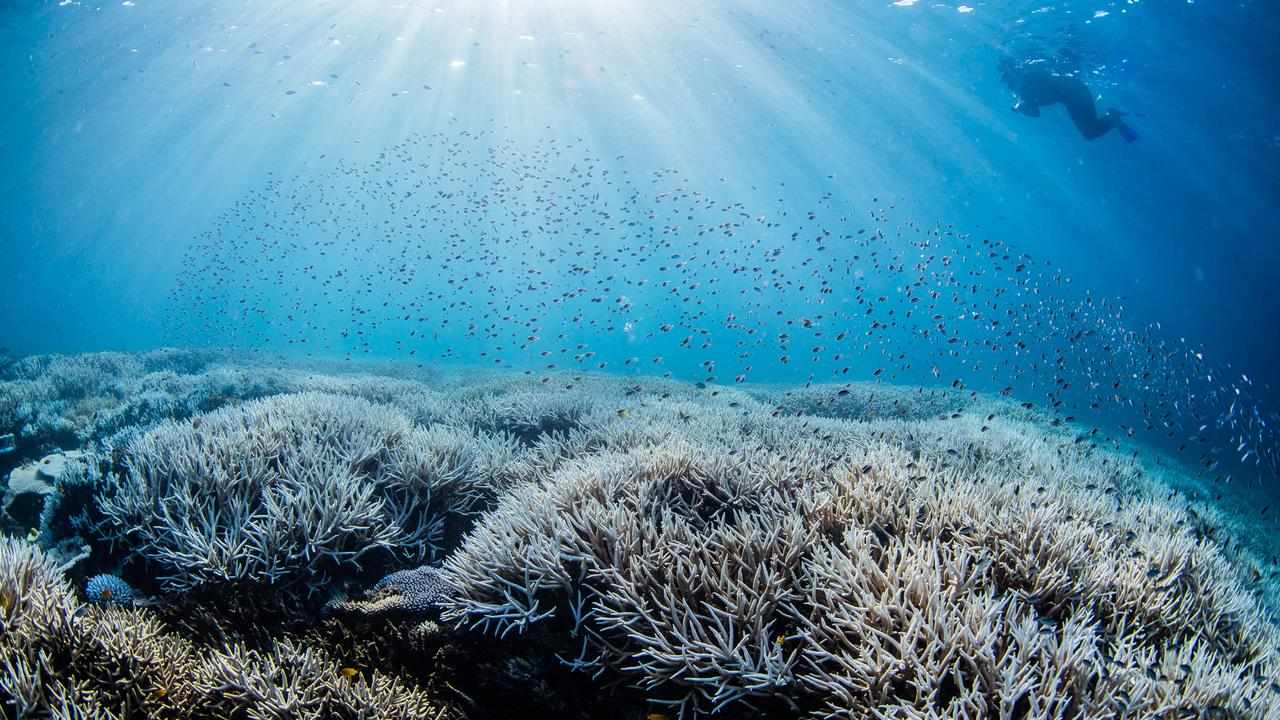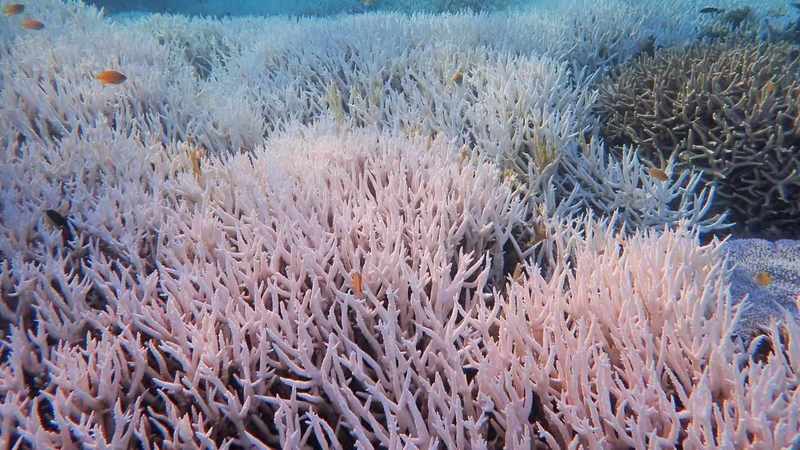At Heron Island, 70km off the Queensland coast, corals that sit in 20 metres of water are slowly cooking.
It's as hot down there as it is on the surface and there's nothing normal about that.
Corals have turned ghostly white at depths that should be cool. Even species typically good at dealing with heat are ailing.
It's too soon to say how many will die but coral expert Selina Ward is rattled by her recent trips to Heron Island, nearby One Tree Island and Sykes Reef, which is roughly in between.
"Every single one of the sites we went to, the bleaching was unbelievably severe. It's the worst I've seen and I can't get my head around it."
Dr Ward is no stranger to mass coral bleaching events, having worked on the reef for 30 years including a stint as academic director at the University of Queensland's Heron Island Research Station.
But this event - the fifth in just eight years - has left her reaching for words like "devastated" and "heart broken" to describe how she's feeling.
"We cannot expect to save the Great Barrier Reef and be opening new fossil fuel developments,'' she says.
"It's time to act and there are no more excuses."
She points to the chorus of warnings from Australia's leading reef scientists.
People such as Terry Hughes, an emeritus professor at James Cook University who sits on an independent panel of reef experts that advises the government.
"This is the most widespread and most severe mass bleaching and mortality event ever recorded on the Great Barrier Reef," he broadcast on X, formerly Twitter, this week.
The Great Barrier Reef Marine Park Authority last week released its latest reef health update with little fanfare despite shocking figures about the scale of the event.
There was no media release from the Commonwealth authority, which reports to federal Environment Minister Tanya Plibersek, nor was there one from the minister although she did comment later, when asked.

Instead the marine park authority used its social media channels, late on a Friday afternoon, to advise the update was available.
Those who clicked through to the authority's website learned bleaching was occurring on 75 per cent of more than 1000 individual reefs surveyed from the air, with half of them suffering high or very high levels of damage.
There was a warning the danger has not passed, with heat stress building in parts of the reef.
The news coincided with an unannounced visit by the government's special envoy for the reef Nita Green and marine park authority's CEO Josh Thomas to UNESCO in Paris.
The government is trying to keep the reef off the list of World Heritage sites in danger.
It also emerged the marine park authority has updated its climate change position statement to remove any reference to fossil fuels and the need for strong national action on climate change, alongside international action.
AAP has sought comment from the authority.
The Australian Marine Conservation Society has released footage and images from Dr Ward's reef tour and is demanding the authority release maps to show the extent of bleaching.
"If this was a bushfire it would be declared a national disaster but because it is underwater and out of sight, it is not getting the attention it should by our leaders," says marine ecologist and reef campaigner Lissa Schindler.









